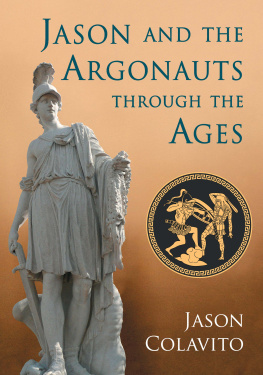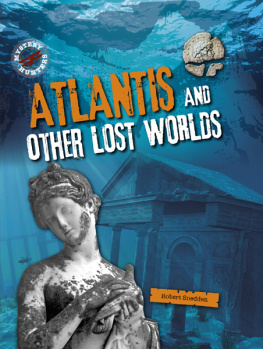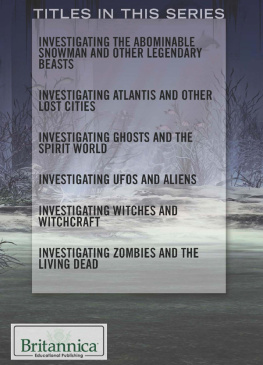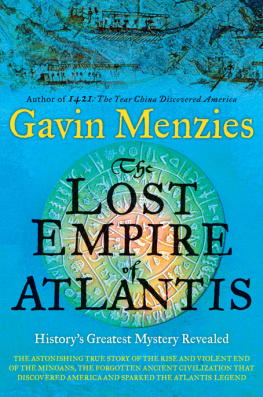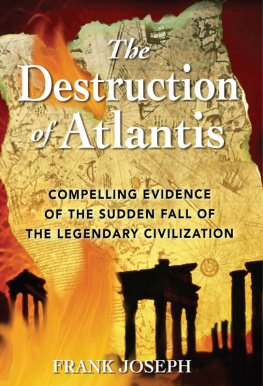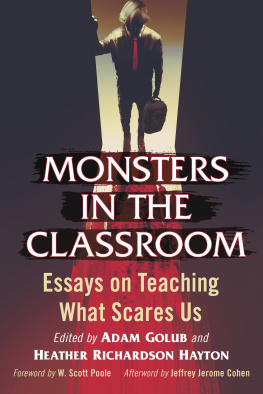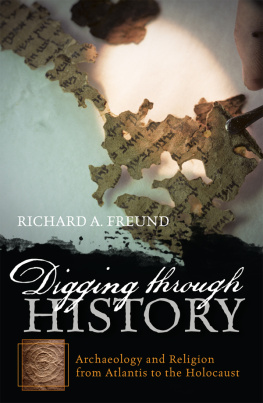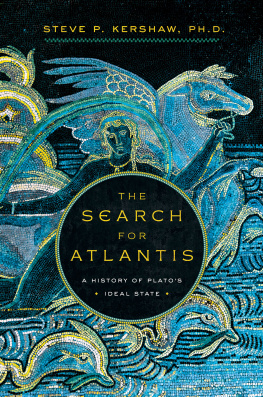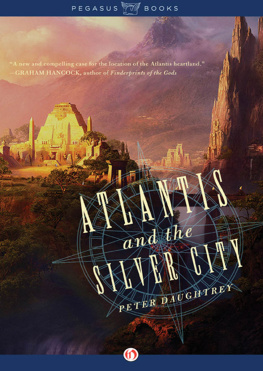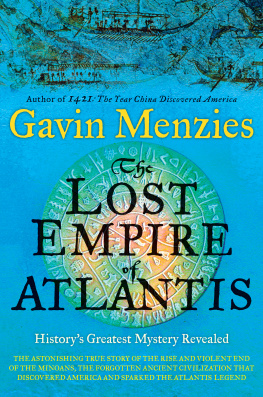All Rights Reserved. No part of this book may be reproduced or transmitted by any means, electronic or mechanical, including photocopy, recording, or any other information storage and retrieval system, in any form whatsoever (except for copying permitted by U.S. copyright law or by reviewers for the public press), without the express written permission of the author.
Versions of the material included in this book first appeared on JasonColavito.com except as noted below:
Who Really Discovered America?, Who Lost the Middle Ages?, Golden Fleeced, and Did Native Americans Discover Europe in 60 BCE first appeared in Skeptic magazine; Of Atlantis and Aliens first appeared in Swans magazine.
Introduction
Ive been interested in fringe ideaancient aliens, Atlantis, monsterssince I was a kid. In my first book, The Cult of Alien Gods (2005) I told the story of how my childhood discovery of the ancient astronaut books of Erich von Dniken prompted a teenage belief in alternative history that lasted until the house of cards came crashing down in my collegiate years. The Sirius Mystery author Robert Temple had claimed that an African tribe called the Dogon possessed anomalous knowledge of the Sirius star system, knowledge only aliens could provide. But I learned that anthropologists had found no such evidence, and the Sirius mystery crumbled. More research revealed still more distortions, omissions, and lies until nothing remained.
In early 2001, I began writing about what I had learned, just before I turned twenty. I pu blished my thoughts about alternative history on my first website, Lost Civilizations Uncovered . In 2003, I made my most important discovery: that much of todays alternative history could be traced to the influence of the horror and science fiction writer H. P. Lovecraft, which I reported in my first professionally published article, Charioteer of the Gods (2004). It ran in Skeptic magazine, and I later expanded and updated it for Dark Lore 7 (2012). I have included it in this anthology as Chapter 2. This article led to a book deal for The Cult of Alien Gods , which I thought would be my last word on ancient astronauts and alternative history. I continued writing articles for Skeptic magazine after this, but I turned my focus to my other love, horror fiction, producing a well-received study of the relationship between horror fiction and science as well as a critically acclaimed anthology of early horror criticism.
Then things changed. In 2009, the History Channel screened Ancient Aliens , a two-hour special intended as a pilot for a future series. I didnt watch it the night it debuted. Instead, I got a phone call from my father telling me that a friend of his had watched the show and saw my name in it. I turned on the show in a subsequent showing, and there I was, or rather a full-screen image of my Charioteer of the Gods with my name prominently displayed. The narrator was discussing von Dnikens 1968 book Chariots of the Gods? But in spite of the books enormous popularityor perhaps because of it, von Dnikens theories were scorned by scientists, and jeered at by theologians. As scare quotes I never said scrolled across my name, the image inverted to deep black, and my name burst into an evil blood redimplying without words that the show took a negative view of my work.
Well, that wasnt good.
Ancient Aliens rekindled my passion for truth, and in the intervening years, I have investigated hundreds of claims made by every manner of alternative historian, from ancient astronaut writers to Atlantis believers, from pyramid mystics to mystery-mongers. I have published these investigations in the pages of Skeptic magazine, the eSkeptic online newsletter, as well as my website, JasonColavito.com, both as feature articles and among my daily blog posts. What you are about to read is a collection of fifty of my best essays on fake history and false claims, covering everything from Atlantis to Chupacabra to Stonehenge to UFOs, and even the demonic power of the humble dinner fork. All of these essays have been newly revised and updated for this edition, including full references.
Mark Twain once said, Truth is mighty and will prevail. There is nothing the matter with this, except that it aint so. I hope that the following essays make at least a tentative step toward giving the truth a fighting chance.
Of Atlantis and Aliens: Alternatives to History as Cultural Mirror
S ometime in the early history of ancient Greece, the Greeks came into contact with the Medes, an Iranian people living in Western Anatolia and the Caucasus. These people worshiped in holy places that they called yazona (= Persian ayadana ), and the Greeks were greatly confused by this strange word. To them it sound very much like Iasonion, which they interpreted as altars sacred to the hero Jason (Iason in Greek), of Argonautic fame. From this discovery of a landscape studded with temples to Jason, the Greeks concluded that the Argonauts had conquered the Near East, and that the Medes were, by the same similarity of sound, the descendants of Jasons son Medus, by his wife, the sorceress Medea.
This object lesson in ancient hubris is a useful case study in how cultural assumptions and ethnocentric desires color the way even the most educated individuals interpret and understand the world around them. It also leads us to a deeper understanding of how the ad hoc explanations proposed for historical and cultural facts can open a window on the cultural expectations and values that popular theorists, especially those in the New Age and alternative archaeology movements, unconsciously foist onto history in their quest to rewrite the past to make it more palatable to the present.
Nowhere, perhaps, is this more obvious in the various theories proposed to explain the peopling of the Americas . Since the eighteenth century, mainstream scholars have understood that the Americas were populated from Asia, by peoples whose origins could be traced back to Siberia. But this fact, well-attested by archaeology, has been under near-constant assault almost from the first. Early opponents, almost all in the United States, stressed potential visitors from the high cultures of the Old World, including the peoples of Vedic India, the Phoenicians, and above all the Hebrews. An entire religion, the Church of Jesus Christ of Latter-Day Saints (the Mormons), was established on the belief that the Hebrews were the founding population of the Americas. Such theories were, in retrospect, designed to provide a suitably historic foundational myth for the United States, a country in search of an identity to replace the British history it had shed. The upshot of this myth was the Trail of Tears, which President Andrew Jackson specifically justified with appeal to lost founders who predated the Native Americans: In the monuments and fortresses of an unknown people, spread over the extensive regions of the west, we behold the memorials of a once powerful race, which was exterminated, or has disappeared, to make room for the existing savage tribes. This massacre, he said, was why removal of the Native Americans was not merely right but would restore America to its rightful heirs.
The growth pangs of the new nation soon gave way to imperial ambitions; the era of Man ifest Destiny and Americas entry onto the world stage required a suitably imperial mythology as precedent. In place of the Hebrews, former Minnesota congressman Ignatius Donnelly proposed the longest-lasting of American myths: the global empire of Atlantis, an expansionist power spreading civilization around the world, an almost transparent analogy for Americas self-conception. Francisco Lpez de Gmara had written in 1552, associating the new owners of the Americas, Spain, with a grand, mythic imperial predecessor. Atlantis recurred in Spanish writings for the next two centuries. It was, as always, the myth of the conquerors, beloved also in the British Empire and Imperial Germany, but of very little importance to the conquered.


